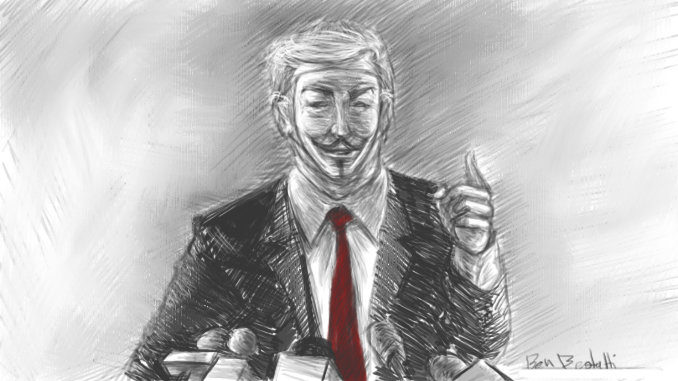No, this is not about the Coronavirus, nor about the epidemic that pesters us with numbers and statistics. There is nothing in this title that has to do with the crisis, the drastic changes in customs or the painful questions about an increasingly uncertain future. Things are much simpler. The real problem is that archaic remedy against diseases, that is, that mask imposed by law and glued on our face. It seems to protect us, but still gives us a suspicious air of ancient brigands, the kind who will carry trombones and cutters.
As a matter of fact, the idea of the mask recalls the image of the Carnival, the period in which the world happily turns upside down. It is known that the tradition of Carnival dates to the Middle Ages, when, once a year, social, economic and cultural relations tip over, allowing people to cover their faces with masks. The upside-down world was precisely the title of a 1963 book, in which Giuseppe Cocchiara, sociologist and ethnologist, showed how social and cultural reality was upset in those days by the change in physiognomy; since masks have the power to transform the servant in master, man in woman, aristocrat in plebeian.
Tradition soon became a fashion, with ladies and knights willing to hide behind masks, in a game ready to turn into a skirmish of love, fierce misunderstandings or hilarious jokes. In the end, the reference to the carnival mask ended with I know you, mask! a comedy (and a 1943 film) by Eduardo De Filippo, who had obtained the subject from a farce by Scarpetta. It is a theatrical piece full of twists and turns around carnival masks which carry to funny misunderstandings and cunning tricks.
But this is where the deception hides. Does the mask hide the truth, or does it make it appear? Does it hide our true face or is it called to reveal it? The human being is reflected in the mask and is afraid of what he/she has seen in it. It is exactly what happens in Pirandello’s Henry IV. At the beginning there is a madman disguised as an emperor, surrounded by friends who are also disguised to indulge their madness. But then the madman reveals that his insanity is the result of truth, and the masks of his friends turn out to be a well-worn disguise and a madness that keeps the group and its petty interests tied.
The mask reveals the truth while hiding it.
But now we are covered, not just at Carnival, but every day. Everyone, all over the world, wears the same type of mask and every inhabitant of the planet must necessarily wear one. So, what happens when this character takes on the size of a mass? When did hordes of workers mark their heavy and steady pace entering and leaving the factory, as in Metropolis, 1927 film by Fritz Lang? Or when armed masses of Germans or fascists in uniform paraded in front of the Fuhrer or the Duce and greeted them all with their arms raised? Or again, when multitudes of young people flock in delirium to listen to a rock concert? Lots of masks has fallen or fall on these crowds, in whose obsessive equality it is not difficult to see their true face, not individual, this time, but collective and disturbing.
Today the Coronavirus has covered the world with masks. All the same masks, which give the features a unique distinctive feature, an image not of belonging to humanity (the smile, the tears, the intelligence, the thought, the stupidity). It pictures men and women as amorphous creatures, incapable of feelings or passions, closed in the anonymity of that blindfold where nothing is hidden. The world has fallen into an eternal, unyielding Carnival, in which the joy has turned into a silent and opaque grimace. A deadly silence is released around them. Only the eyes remain alive above that anonymous mask: lively, curious, indifferent, dreamy. They shine behind an obsessive disguise and desperately try to evoke the name and substance of the things that continue to rotate indifferently all around. As if to say, stubbornly: I know you, mask!








